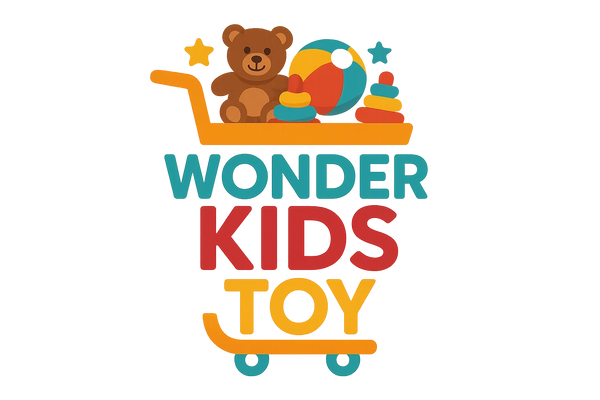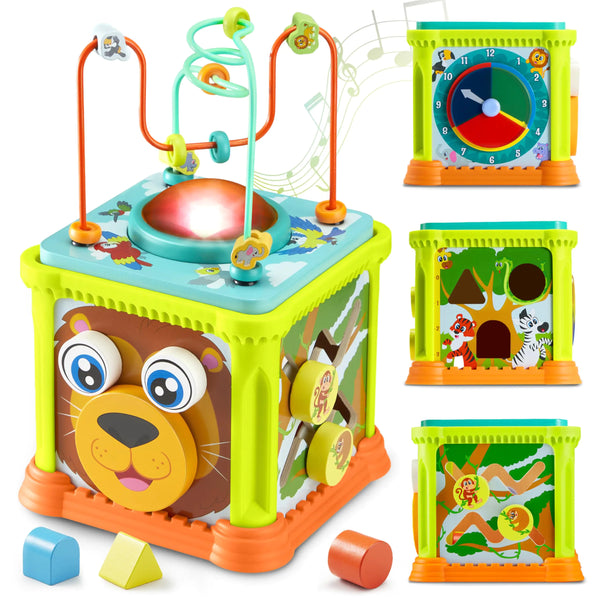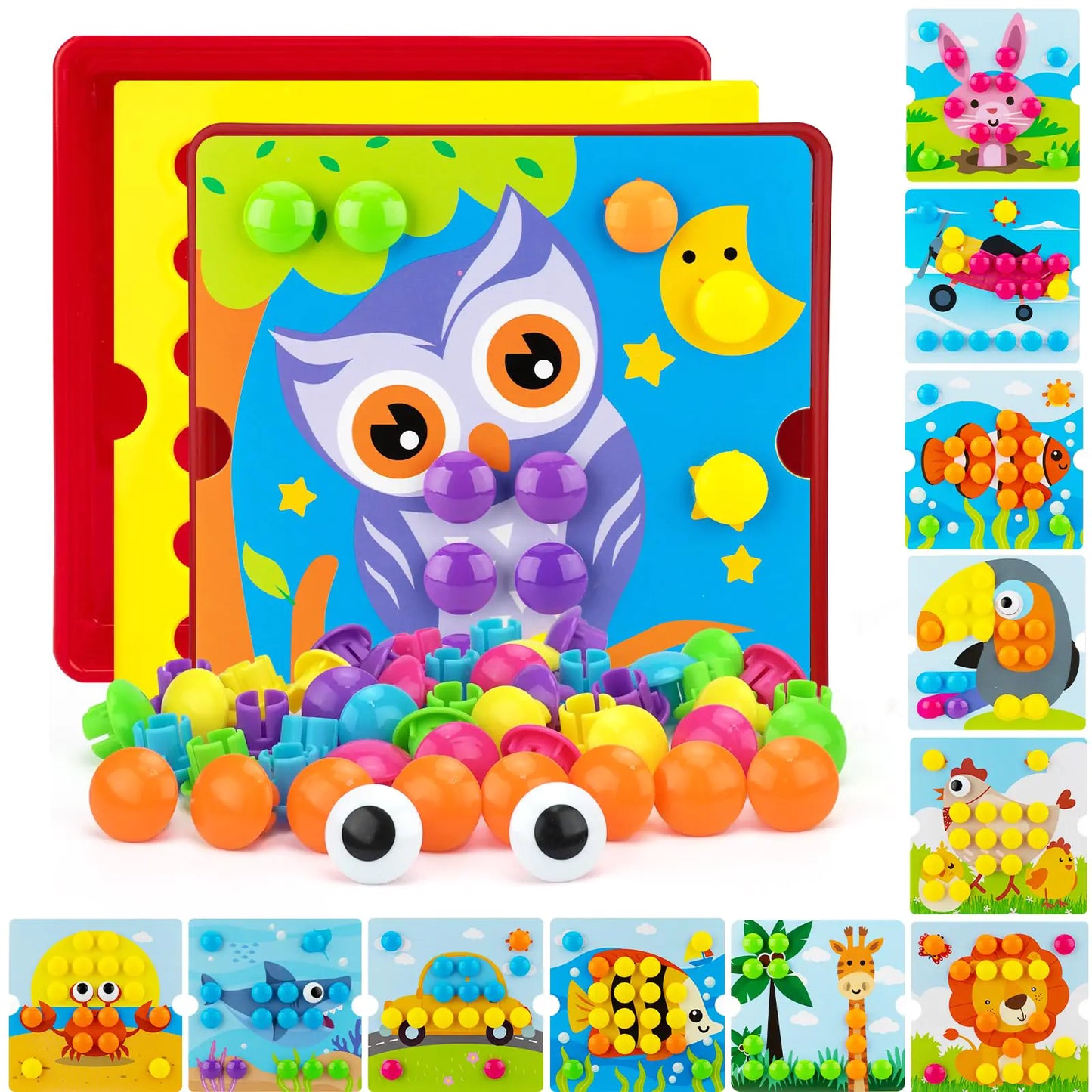Fine motor skills are crucial for a child's overall development, impacting their ability to perform everyday tasks and setting the foundation for future learning. Educational toys play a significant role in enhancing these skills, making playtime both fun and beneficial. This guide aims to help parents choose the best educational toys to support their child's fine motor skill development at various stages of growth.
Key Takeaways
- Fine motor skills are essential for a child's daily activities and long-term development.
- Selecting age-appropriate and safe educational toys can significantly enhance fine motor skills.
- Different types of toys, such as soft blocks for babies and puzzles for preschoolers, target specific developmental stages.
- Parents play a crucial role in fostering fine motor skills through interactive, supportive playtime.
- Avoiding common mistakes in toy selection, like overcomplicating choices, ensures effective skill development.
Why Fine Motor Skills Matter for Kids

Understanding Fine Motor Skills
Fine motor skills involve the coordination of small muscle movements, particularly in the hands and fingers. These skills are essential for tasks like picking up objects, writing, and even tying shoelaces. Developing these skills early on can set the foundation for more complex tasks later in life.
Impact on Daily Activities
When kids have well-developed fine motor skills, they can perform daily activities more easily. This includes everything from brushing their teeth to using utensils during meals. Improved fine motor skills can also boost their confidence as they become more independent.
Long-term Benefits
The benefits of fine motor skills extend beyond childhood. As kids grow, these skills contribute to academic success, particularly in writing and art. Additionally, strong fine motor skills can lead to better job opportunities in fields that require precise hand-eye coordination, such as surgery or engineering.
Investing time in developing your child's fine motor skills can have lifelong benefits, making everyday tasks easier and opening up a world of opportunities.
Choosing the Right Educational Toys

When selecting educational toys, it's crucial to ensure they are suitable for your child's age group. This not only keeps them safe but also ensures they are intellectually challenged without being overwhelmed. Age-appropriate toys can help develop specific skills pertinent to their developmental stage.
Safety should always be a top priority when choosing toys. Look for toys made from non-toxic materials and with no small parts that could pose a choking hazard. Always check for any recalls or safety warnings related to the toy. Peace of mind comes from knowing your child is playing with safe and reliable toys.
The best educational toys strike a balance between fun and learning. They should be engaging enough to hold your child's interest while also providing educational value. Games that incorporate problem-solving, creativity, and critical thinking can make learning enjoyable. Remember, the goal is to make learning feel like play, so your child remains enthusiastic and curious.
Top Educational Toys for Babies

Soft blocks and stacking toys are fantastic for babies. They are not only safe but also help in developing hand-eye coordination. Educational toys enhance children's fine motor skills through fun activities such as stacking, latching, and coloring. Plus, they are super fun to knock over!
Activity centers are a great way to keep your baby engaged. These centers often include features such as buttons, levers, and spinners that can keep your baby entertained for hours. The variety of activities helps in developing different fine motor skills simultaneously.
Sensory balls are perfect for stimulating your baby's senses. They come in different textures and sizes, which can help in developing your baby's tactile skills. Playing with sensory balls can also improve their grip and coordination.
Remember, the best educational toy is one that your child will find irresistible to explore and learn from.
Best Toys for Toddlers to Develop Fine Motor Skills

When it comes to enhancing fine motor skills in toddlers, choosing the right toys can make a world of difference. Here are some of my top picks that are both fun and educational for your little one.
Shape Sorters
Shape sorters are fantastic for developing hand-eye coordination and problem-solving skills. Toddlers learn to grasp and manipulate different shapes, which helps in strengthening their tiny hand muscles. Plus, it's incredibly satisfying for them to see the shapes fit perfectly!
Building Blocks
Building blocks are a classic choice that never goes out of style. They encourage creativity and spatial awareness while also helping toddlers practice their grip and stacking abilities. The versatility of building blocks means they can be used in countless ways, making them a staple in any toy collection.
Interactive Books
Interactive books with flaps, textures, and buttons are excellent for keeping toddlers engaged while also working on their fine motor skills. These books often include activities that require pinching, pulling, and turning pages, all of which help develop dexterity.
Investing in the right educational toys can significantly boost your toddler's fine motor skills, setting a strong foundation for future learning and daily activities.
Preschool Toys That Enhance Fine Motor Skills

For preschoolers, the right toys can make a world of difference in developing fine motor skills. Expert insights suggest that choosing the best educational toys for your child can significantly impact their growth. Let's dive into some top picks for preschoolers.
Puzzles and Pegboards
Puzzles and pegboards are fantastic for enhancing fine motor skills. They require kids to pick up small pieces and fit them into specific spots, which is excellent for hand-eye coordination. Plus, they can be a lot of fun!
Craft Kits
Craft kits are another excellent option. These kits often include activities like threading beads, cutting shapes, and gluing pieces together. Not only do they help with fine motor skills, but they also encourage creativity and imagination.
Play-Doh and Tools
Play-dough and tools are a classic choice for developing fine motor skills. Kids can roll, flatten, and shape the dough, which helps strengthen their hand muscles. It's also a great way to let their creativity run wild.
Balancing fun and learning is key when selecting toys for preschoolers. The right toys can provide both educational value and endless hours of entertainment.
DIY Educational Toys at Home

Making play-dough at home is not only fun but also a great way to engage your child's creativity. You can customize the colors and even add scents for a sensory experience. Homemade play dough is safe, non-toxic, and can be made with ingredients you probably already have in your kitchen. Plus, it's a fantastic way to develop fine motor skills as kids knead, roll, and shape the dough.
Sensory bins are an excellent way to stimulate your child's senses and encourage fine motor development. Fill a bin with rice, beans, or sand, and add small toys or objects for your child to discover. Sensory bins can be themed around different topics like animals, seasons, or even favorite stories. They offer endless opportunities for imaginative play and fine-motor practice as kids scoop, pour, and sort the contents.
You don't need to buy expensive toys to help your child develop fine motor skills. Everyday items like pasta, buttons, and paper can be transformed into fun and educational crafts. For example, threading pasta onto a string can improve hand-eye coordination, while cutting and gluing paper shapes can enhance precision and control. The key is to keep it simple and let your child's imagination lead the way.
Creating DIY educational toys at home is a rewarding experience that not only saves money but also provides unique bonding opportunities with your child. It's amazing how everyday items can be turned into powerful learning tools with just a bit of creativity.
How to Encourage Fine Motor Skills Through Play

Setting Up a Play Area
Creating a dedicated play area at home can make a huge difference. Having a specific space for toys and activities helps kids focus and engage more deeply. Make sure the area is safe, well-lit, and stocked with a variety of toys that promote fine motor skills, such as building blocks and puzzles.
Incorporating Daily Activities
You don't need fancy toys to develop fine motor skills. Everyday activities like buttoning clothes, pouring water, or even helping in the kitchen can be incredibly beneficial. These tasks not only improve hand-eye coordination but also make kids feel more involved in daily routines.
Positive Reinforcement
Always celebrate the small victories. Whether your child successfully stacks a set of blocks or manages to button their shirt, positive reinforcement goes a long way. A simple "Great job!" can boost their confidence and encourage them to keep trying.
Unlocking potential with play: explore benefits of educational toys. Toys for cognitive, motor, and life skills development. Encourage learning through play and social skills on the playground.
The Role of Parents in Developing Fine Motor Skills

As a parent, being actively involved in your child's playtime is crucial. Not only does it strengthen your bond, but it also allows you to guide and observe their development. Engaging in play with your child helps you understand their interests and abilities, making it easier to choose the right educational toys that will benefit their fine motor skills.
Observation is key to developing fine motor skills. By watching how your child interacts with different toys, you can identify which activities they enjoy and which ones challenge them. This insight allows you to adapt and introduce new toys or activities that can further enhance their skills. Remember, every child is unique, so what works for one might not work for another.
Creating a supportive environment at home is essential for your child's development. Ensure that the play area is safe, accessible, and filled with a variety of toys that promote fine motor skills. Rotate toys regularly to keep things interesting and to provide new challenges. Encouragement and positive reinforcement go a long way in building your child's confidence and enthusiasm for learning.
Common Mistakes to Avoid When Choosing Toys

When it comes to picking out educational toys, it's easy to get overwhelmed by the sheer number of options. Sometimes, the most basic toys, like a classic puzzle, can offer the best learning experiences. Don't feel pressured to buy the latest high-tech gadget.
Safety should always be a top priority. Make sure to check for age-appropriate labels and avoid toys with small parts that could be a choking hazard. It's also a good idea to read reviews and check for any recalls.
Don't underestimate the power of simple toys. Items like building blocks or shape sorters can provide endless opportunities for learning and creativity. They might not have all the bells and whistles, but they are incredibly effective in developing fine motor skills.
Remember, the goal is to find toys that are both fun and educational. Sometimes, the simplest options are the most effective.
Educational Toys for Special Needs Children

When choosing educational toys for children with special needs, it's essential to find options that meet their unique needs. Adaptive toys are designed to be inclusive and accessible, ensuring that every child can enjoy and benefit from playtime. These toys often feature modifications that make them easier to use, such as larger buttons or simplified controls.
Adaptive Toys
Adaptive toys are specifically designed to meet the needs of children with various disabilities. They often include features like larger buttons, simplified controls, and sensory elements that make them more accessible. These toys can help children develop fine motor skills, hand-eye coordination, and cognitive abilities in a fun and engaging way.
Therapeutic Play
Therapeutic play is another excellent option for children with special needs. These toys are designed to provide sensory stimulation and promote physical and emotional development. Items like sensory balls, textured mats, and weighted blankets can be incredibly beneficial. They not only help in developing fine motor skills but also offer a calming effect, which is crucial for children with sensory processing issues.
Inclusive Playtime
Inclusive playtime is all about creating an environment where children of all abilities can play together. This can be achieved by choosing toys that are versatile and can be enjoyed by everyone. Building blocks, interactive books, and puzzles are great examples of toys that can be used in inclusive play. The goal is to ensure that every child feels included and can participate in the fun.
Finding the right educational toys for children with special needs can make a world of difference in their development. It's all about choosing options that are both fun and beneficial, helping them to grow and thrive.
Where to Buy the Best Educational Toys

Shopping for educational toys online offers a convenient and extensive selection. Websites like Amazon, Target, and Walmart have dedicated sections for educational toys, making it easy to find age-appropriate and skill-specific options. Plus, you can read reviews from other parents to ensure you're making a good choice.
Supporting local businesses is always a great idea. Many local toy shops offer a curated selection of educational toys that you might not find in big-box stores. The staff are often knowledgeable and can provide personalized recommendations based on your child's interests and developmental needs.
Don't underestimate the value of second-hand toys. Thrift stores, garage sales, and online marketplaces like eBay and Facebook Marketplace can be treasure troves for gently used educational toys. This is not only budget-friendly but also environmentally conscious.
Finding the right educational toy doesn't have to be a daunting task. With so many options available both online and offline, you're sure to find something that will engage and educate your child.
Looking for the best educational toys to inspire and engage your children? Visit our store today and explore our wide range of high-quality, creative, and fun toys that promote learning and development. Don't miss out on our latest 3D educational marvels that will transform playtime into an adventure!
Conclusion
In the end, choosing the right educational toys can make a world of difference in your child's fine motor skills development. It's all about finding that perfect balance between fun and learning. Remember, the best toys are those that engage your child, spark their imagination, and help them grow. So, go ahead and explore the wonderful world of educational toys, and watch your little one thrive! Happy playing!
Frequently Asked Questions
What are fine motor skills?
Fine motor skills involve the use of small muscles in the hands, fingers, and wrists to perform tasks such as writing, buttoning clothes, and using utensils.
Why are fine motor skills necessary for children?
Fine motor skills are crucial for children as they enable them to perform everyday tasks, enhance their hand-eye coordination, and support cognitive development.
How can educational toys help develop fine motor skills?
Educational toys are designed to promote hand-eye coordination, dexterity, and problem-solving skills, all of which are essential for developing fine motor skills.
What are some examples of toys that enhance fine motor skills in toddlers?
Examples include shape sorters, building blocks, interactive books, puzzles, and craft kits.
Are there specific toys recommended for babies to develop fine motor skills?
Yes, soft blocks, stacking toys, activity centers, and sensory balls are excellent for developing fine motor skills in babies.
How do I choose safe educational toys for my child?
Ensure the toys are age-appropriate, made from non-toxic materials, and do not have small parts that could be a choking hazard.
Can DIY toys be effective in developing fine motor skills?
Absolutely! Homemade play dough, DIY sensory bins, and crafting with everyday items can be very effective in promoting fine motor skills.
Where can I buy the best educational toys?
You can purchase educational toys from online stores, local toy shops, or even second-hand sources for a more affordable option.













